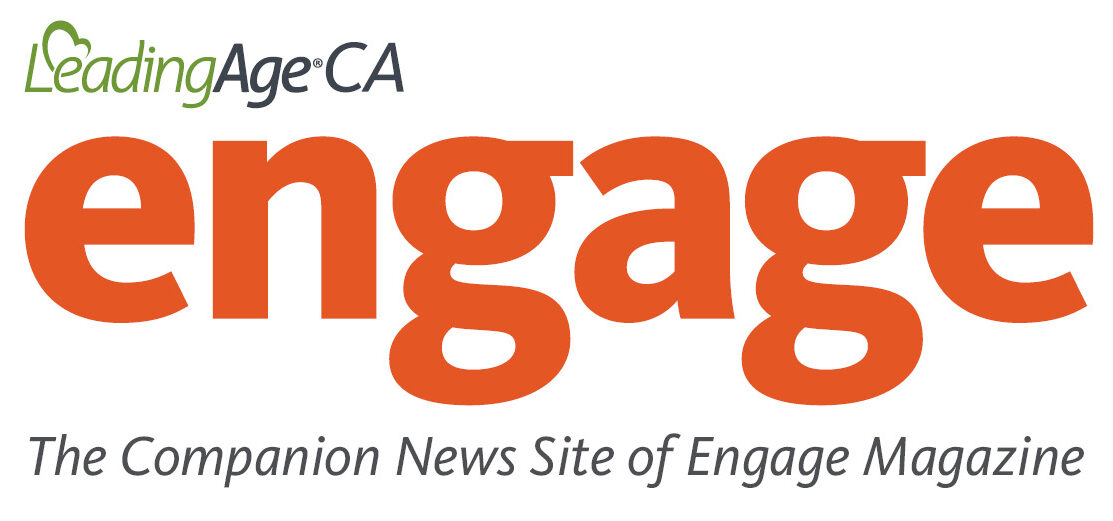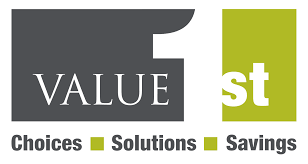March 15, 2019
Overview:
President Trump presented his fiscal 2020 budget proposals to Congress on March 11. LeadingAge has a number of concerns about the proposed budget across all federal aging services programs.
Fortunately, the President’s budget proposal is just the first step in the budget and spending process for the fiscal year that will begin on October 1, 2019. It is now up to congress to determine spending levels for federal programs and whether any policy changes will be made. LeadingAge will work with policymakers to ensure that aging services providers have the resources to meet the needs of people as they age.
In the regulatory arena, the Centers for Medicare and Medicaid Services (CMS) and other agencies have issued a number of new rules and other directives. Members of Congress are concerned about the quality of federal and state nursing home oversight, as indicated by the March 6 Senate Finance Committee hearing on abuse and neglect in nursing homes.
Fiscal 2020 Trump Administration budget proposal –
housing:
The budget request calls for a five percent cut to the Section 202 program and the complete elimination of the Public Housing Capital Fund, the HOME program, and the National Housing Trust Fund. Once again, President Trump asks Congress to raise rents for HUD-assisted households, including elderly households. These kinds of proposals run directly counter to the need to preserve and maintain our present affordable housing stock and step up production to meet the needs of a growing senior population.
Fiscal 2020 Trump Administration budget proposal – Medicaid:
The President’s budget would cut federal spending on Medicaid by $1.48 trillion over the next ten years. The Administration’s budget resurrects the call for the transformation of Medicaid into a block grant or system of per-capita capped payments to the states. We remain strongly opposed to this proposal, which would take billions of federal dollars out of the program at a time when many states are struggling to fund essential long-term services and supports covered by Medicaid.
The budget would eliminate state provider taxes. It also
brings back the idea of imposing user fees on nursing homes for resurveys.
Fiscal 2020 Trump Administration budget proposal – Medicare:
Medicare spending would be reduced under this budget by $811 billion over ten years. Cuts to providers include the establishment of a unified system of post-acute care payment by 2025, with reduced annual payment updates to skilled nursing facilities, home health agencies, and inpatient rehabilitation facilities every year from 2020 through 2024. This proposal is projected to reduce Medicare post-acute care spending by $101.2 billion over 10 years. In addition, reimbursement for bad debt would be cut from the current 65% to 25%.
Fiscal 2020 Trump Administration budget proposal – HCBS:
For home- and community-based services under the Older Americans Act and other aging services programs, the budget proposes to zero out falls prevention and chronic disease self-management programs. Supportive services and nutrition services would be flat-funded at 2019 levels. Family caregiver support would be cut by $31 million, Alzheimer’s Disease programs by $4 million, and Lifespan Respite Care by $1 million. Aging and disability resource centers would be cut by $2 million and assistive technology programs by $4 million. State Health Insurance Programs (SHIPs), which help older people navigate the health and long-term services and supports system, would be cut by $13 million. Social Services Block Grants, which many states use to fund home- and community-based services, would be zeroed out. These are all small, cost-effective, chronically underfunded programs that help older people live in community-based settings as long as possible. With the growth in the over-65 population, these programs need increased resources, not cuts.
Medicare Observation Days legislation:
Legislation has been introduced in both the House and the Senate, H.R. 1682 and S. 753 respectively, to resolve the observation days issue by requiring all time Medicare beneficiaries spend in a hospital to count toward the three-day stay requirement for coverage of any subsequent post-acute care. We strongly support the legislation and are urging legislators to cosponsor these bills.
Home and community-based services (HCBS):
Money Follows the Person (MFP): This
demonstration program that helps states rebalance their Medicaid programs
expired at the end of 2018. Congress passed the Medicaid Extenders Act of 2019,
now law, to provide three months of funding for MFP, allowing states to use the
money through the end of September 2019. Reps. Debbie Dingell (D-MI) and
Fred Upton (R-MI) have now introduced H.R. 1342 to permanently authorize the
Money Follows the Person program. In the Senate, Senator Rob Portman (R-OH) has
introduced the corresponding measure, S. 548.
Spousal impoverishment protections for Medicaid HCBS clients: This was another program that expired at the end of the 115th Congress. The Medicaid Extenders Act also included a three-month extension of this protection for spouses of Medicaid beneficiaries receiving home and community-based services. (Note: Nursing home residents covered by Medicaid and their spouses have their own protections and are unaffected by this policy.) Reps. Debbie Dingell (D-MI) and Brett Guthrie (R-KY) have introduced H.R. 1343 to make home health spousal impoverishment protection permanent.
Older Americans Act: The law that funds a wide range of home and community-based services, including congregate and home-delivered meals, family caregiver support, and transportation, is due for reauthorization this year. We are working with other stakeholders on reauthorization legislation, including an increase in funding to meet the needs of an aging population.
Workforce:
Geriatric Workforce Enhancement Program reauthorization: We are working for passage of S. 299, the Geriatrics Workforce Improvement Act introduced by Senators Susan Collins (R-ME) and Bob Casey (D-PA). This bill would help to ensure a more adequate supply of health care and other professionals trained and educated to meet the special needs of people as they age.
Nurse aide training lock-out: Since the automatic loss of training authority is statutory, we worked with Rep. Sean Duffy (R-WI) in the 115th Congress on the introduction of the Nursing Home Workforce Quality Act. We educated dozens of Congressional offices about the devastating impact of the CNA training lockout, and many LeadingAge members participated in our grassroots campaign.
Rep. Duffy has reintroduced the bill as H.R. 1265, with Reps. Collin Peterson (D-MN) and Greg Gianforte (R-MT) as co-sponsors. We have issued an action alert to LeadingAge members to contact their representatives in the House and ask them to cosponsor the bill.
Requirements of Participation: The
third and final phase of the new requirements of participation go into effect
November 28, 2019. We have begun posting tools and holding webinars to help
members prepare. We still have a few months left on the moratorium on civil
monetary penalties for deficiencies cited under Phase II.
RoPs Phase 2 civil monetary penalty moratorium: In a Senate Committee on Finance hearing on March 6, Dr. Kate Goodrich of CMS announced that the 18-month moratorium on Civil Monetary Penalties (CMPs) will be lifted in May 2019. Originally instituted in November 2017 with the implementation of Phase 2 of the Requirements of Participation, the moratorium had been put in place to allow more time for compliance in eight categories. While deficiencies were still cited in these areas on survey, enforcement remedies were, according to CMS, more educational in nature.
Senate Finance Committee nursing home oversight hearing: LeadingAge was also present for this hearing, entitled Not Forgotton: Protecting Americans from Abuse and Neglect in Nursing Homes, and submitted a statement highlighting efforts around the country to improve quality of care and quality of life for older adults, advocating for the expansion of CMS’s Five-Star Quality Rating System to include national data, rather than state-by-state data, and urging policy-makers to consider more constructive means of remediation in instances of deficient practice rather than imposing fines and other monetary penalties that only seek to create further barriers.
The Five Star Quality Rating system is getting a make-over, effective April 24, 2019. Frozen in February 2018, the Health Inspections star rating will return and will include results from surveys conducted on or after November 28, 2017. The Staffing domain introduces new hurdles including new staffing thresholds, increased weighting for RN staffing and a significant change to the RN on-site threshold. Additionally, the Quality Measures of the Five Star Rating System will feature higher thresholds, new weighting and a separation of data for long-stay versus short-stay residents.
Appendix Q of the State Operations Manual has been revised. Core Appendix Q offers updated guidance on citing immediate jeopardy (IJ). Surveyors must now evaluate on the basis of the likelihood of harm, rather than the potential for harm, and are newly instructed to consider the aspect of psychosocial harm. These changes are effective immediately.
Elimination of inappropriate antipsychotics use: Facilities
that have struggled to reduce the use of antipsychotic medications will now be
subject to enhanced
oversight and enforcement. Identified as “non-improving late adopters,” facilities with two
or more deficiency citations in the areas of Chemical Restraints (F605),
Dementia Care (F744) or Psychotropic Medications (F758) may be subject to fines
and penalties to include discretionary Denials of Payment for New Admissions
and Civil Monetary Penalties.
Trauma-informced care: In an effort to assist in the implementation of Trauma-Informed Care, LeadingAge announces the release of a new resource, Implementing Trauma-Informed Care: A Guidebook. Available to members, this guidebook is a follow up to Foundations of Trauma-Informed Care and provides strategies for compliance with Phase 3 of the Requirements of Participation while improving an organization’s culture for residents, their families and the staff who care for them.
Proposed 2020 Medicare Advantage Plan Policies and Rates:
LeadingAge’s comment letter on the CMS 2020 Advance Notice of Methodological Changes for Medicare Advantage (MA) Capitation Rates and Part D Payment Policies (the Advance Notice) and Draft Call Letter (“Call Letter”) urges CMS to reconsider its small proposed MA plan rate increase which could negatively impact provider rates and the ability of the plans to offer new supplemental benefits options including home and community based services and other special benefits targeted at the chronically ill.
Reports to Warn SNFs If They Are at Risk of a 2% Rate Penalty:
CMS has released a long-awaited, crucial new report for the Skilled Nursing Facility Quality Reporting Program (SNF QRP) called the Provider Threshold Report (PTR). The report shows SNFs if they are meeting the 80% reporting threshold requirement on the SNF QRP measures during a calendar year. Failure to meet this threshold can result in a SNF having its Medicare Fee-For-Service rate reduced 2% in the forthcoming fiscal year. The report will give SNFs the opportunity to make updates or correction to their MDS submissions if they are below the 80% threshold on any of the measures.
New EPA rule on pharmaceutical waste disposal:
The Environmental Protection Agency (EPA) published a new rule on February 22, 2019: “Management Standards for Hazardous Waste Pharmaceuticals” (“Final Rule”). The Final Rule eliminates “sewering” of hazardous waste pharmaceuticals, effective as of August 22, 2019.
Medicare Patient-Driven Payment Model (PDPM):
The new Medicare payment system for skilled nursing facilities will go into effect on October 1, 2019. To prepare, SNFs will need to learn the new minimum data set (MDS) requirements and coding according to the ICD-10 system. We are making tools and information available to members to help them prepare.
Senior housing resources:
In addition to working on fiscal 2020 funding for federal senior housing programs, we are advocating for the reintroduction of legislation to improve and expand the Low-Income Housing Tax Credit program. Key areas of improvement for us are in better serving low income older adults and preserving LIHTC housing.
We also expect a lot of activity in the 116th Congress on the National Housing Trust Fund and the Capital Magnet Fund, which provide significant capital and operating subsidies for affordable housing. Both these funds get their resources from Fannie Mae and Freddie Mac, whose next regulator may call for halting funding into the HTF and the CMF.
Immigration:
We have raised concerns about the loss of temporary protected status for thousands of immigrant long-term care workers who now will be subject to deportation according to Trump Administration policy.
In view of the number of long-term services and supports workers who have come to the United States from other countries, mostly on the basis of family reunification, we would be concerned about any proposals to restrict family-based immigration.
We are looking into the possibility of legislation to create a guest worker program that would authorize long-term services and supports providers to sponsor people from other countries to work in the sponsoring organizations for a limited period of time.
We also filed comments in opposition to the rule proposed by the Department of Homeland Security to broaden the number of federal programs the federal government would consider in making public charge determinations on admissions of potential immigrants.
Center for Workforce Solutions:
LeadingAge partnered with the Gerontological Association of
America, AHCA/NCAL and Argentum to make March 3-9 this year’s Careers in Aging
Week.
The goal of the week is to allow our member organizations to make students aware of the rich variety of jobs in the field of aging services. We are asking members to invite students to their organizations for different events—or, reach out to local schools and ask to talk to students about our field. We are providing tools and resources for members to participate.
Center for Managed Care Solutions and Innovations:
We are developing comments on the 2020 Advance Notice of Methodological Changes for Medicare Advantage (MA) Capitation Rates and Part D Payment Policies (the Advance Notice) and Draft Call Letter CMS released on January 30. Key elements involve the way Medicare Advantage and Part D plans will be paid and operate in 2020, including new Special Supplemental Benefits for the Chronically Ill (SSBCI) option, new plan performance measures, and payments for crossover claims for dual eligibles. Comments are due on March 1.
Regulatory tracker:
Our Regulatory Roundup 2.0, is a quick and easy tracker to help members find pertinent rules and federal regulations, with timelines for submitting comments and links to any comments LeadingAge may have submitted.
Guidance on marijuana and weapons policies:
We have published guidance for members on medical marijuana and weapons policies in aging services organizations.
2030 Scenario Planning for Aging Services:
In an uncertain political and regulatory environment with multiple forces impacting aging services, it is imperative that we help our provider members take the initiative to plan for possible futures. We engaged the Institute for Alternative Futures to help us with 2030 Scenario Planning for Aging Services and developed a toolkit for members.


